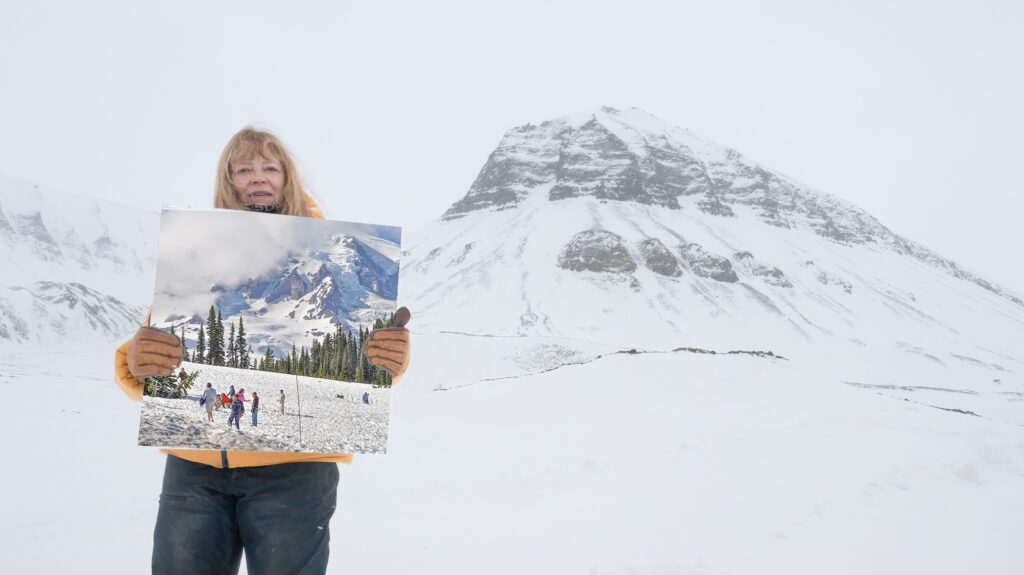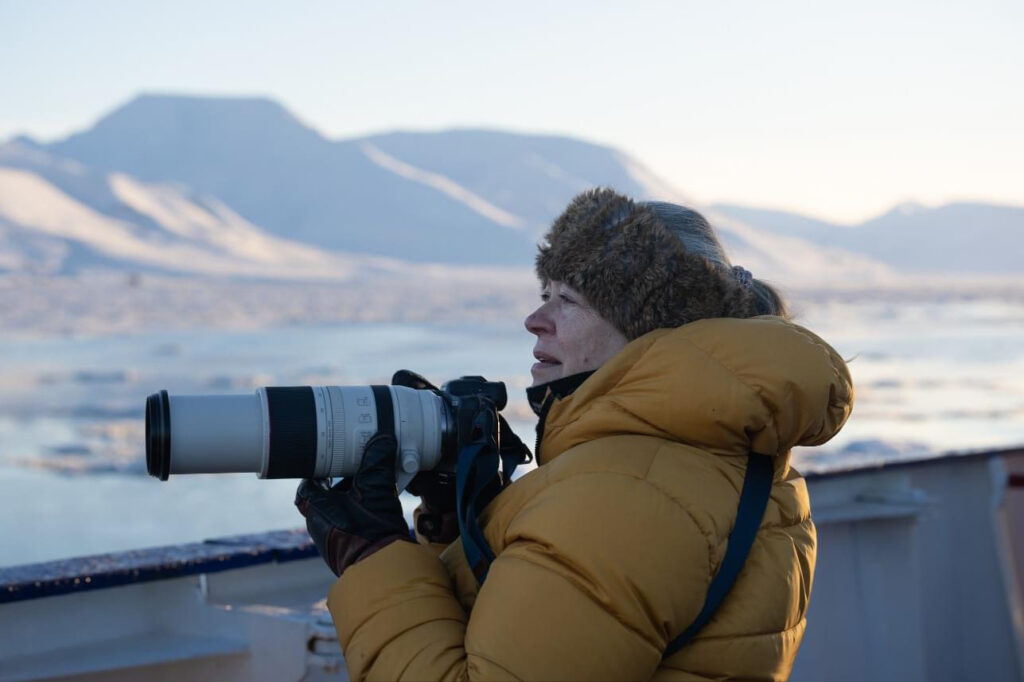Elizabeth Philotera Bourne
At a time when most people my age are thinking about retirement and grandchildren, I packed seven suitcases, and moved to Svalbard. The next seven years were spent experiencing the extremes of the high Arctic.
The high arctic is stark, beautiful, and unforgiving. It’s a place where you realize humanity is not the measure of all things. In a land where night lasts for three months, the first sunrise brings you to year knees. After three months of unrelenting daylight, the first sunset can make you weep. It is one of the last true wild places. If we lose the arctic, not only do we endanger humanity’s survival as well destroying innumerable other species, but we lose our soul. As the human world becomes louder, brighter, and more dangerous, more than ever we need to remember that we are part of nature, not separate or above it.
In March of 2025 I returned to the Pacific Northwest. My mission as an artist remains helping people understand about climate change. While it is happening seven times faster on Svalbard, it is happening everywhere. We see it in extreme hurricanes, droughts, wild fires. As a global species we are not doing enough to mitigate these changes. They will continue to come faster and faster and it will be devastating. So many will die — people, animals, plants. Extinctions are already happening. Future generations will suffer due to our greed and selfishness.
I believe that art must speak a deeper truth than mere representation. My own work, while incorporating depiction, also engages with a strong heart-felt reaction. For me, the artist must have a passion for their subject and a core need to communicate that emotion to the viewer. My hope is that my work, both photographs and paintings, can inspire people to love nature. We need the wild places on our increasingly crowded planet, not only for the creatures that live there but also for ourselves.

